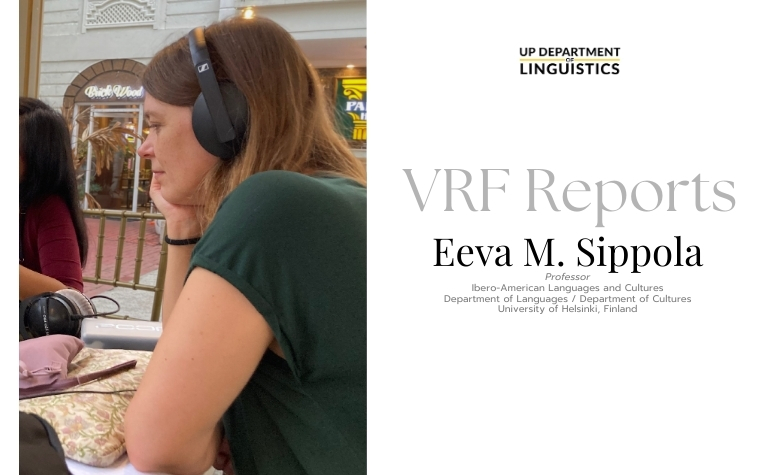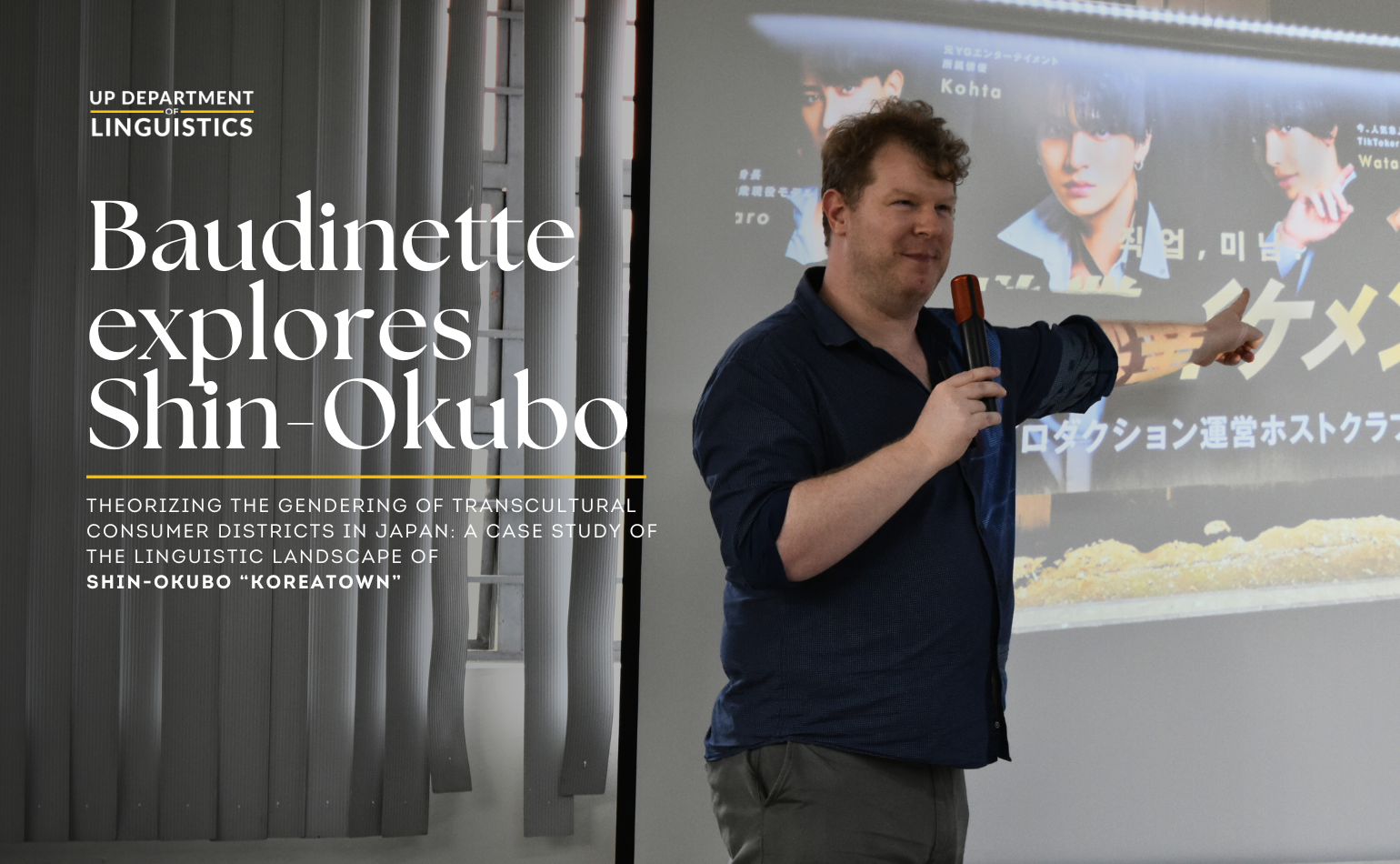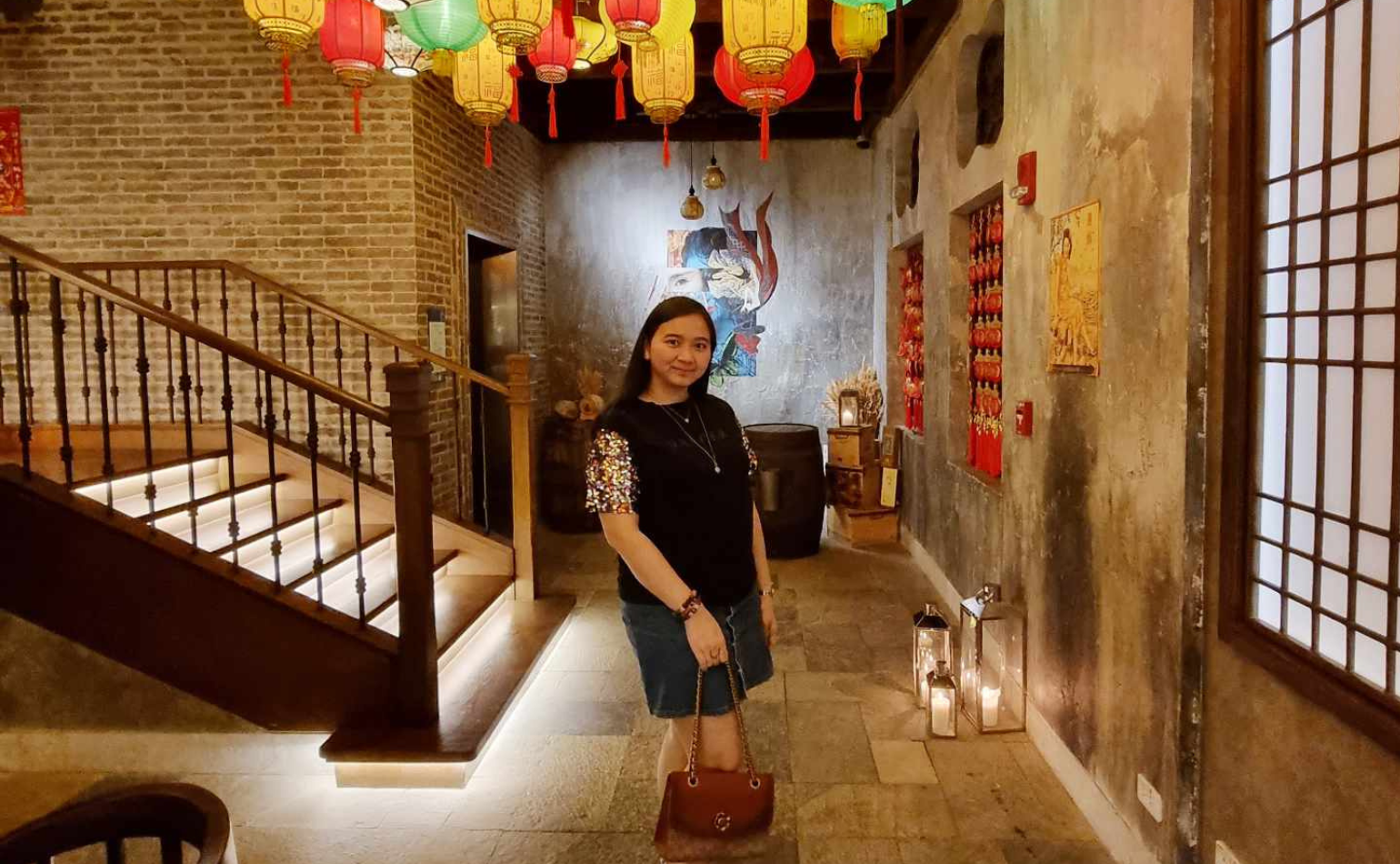
Chinese language lecturer Maria Joanna Tecson joined the Department in 2020 at the height of the COVID-19 pandemic. That rocky and uncertain period might have been a less than ideal time to be introduced to the University and the Department, and so we are happy that she remains to this day a vital member of our faculty. Read on to get to know more about Tecson 老师!
1. Tell us about your background.
I am a graduate of Fujian Normal University in Fuzhou, China with a bachelor’s degree in Chinese Language. I also completed the Bachelor of Secondary Education major in Teaching Chinese Language program at Chiang Kai Shek College. I attended several advance studies and trainings in Chinese language pedagogy at the National Taiwan Normal University School of Continuing Education and at Dalian University of Foreign Language. Currently, I am also a Mandarin language instructor at the Ateneo de Manila University Confucius Institute and a Hokkien language lecturer at the Ateneo Ricardo Leong Center for Chinese Studies. I have also conducted multiple Chinese language training seminars and workshops for different institutions, both public and private alike. I was also formerly affiliated with the Bureau of Immigration as a Chinese translator at NAIA Terminal 1.
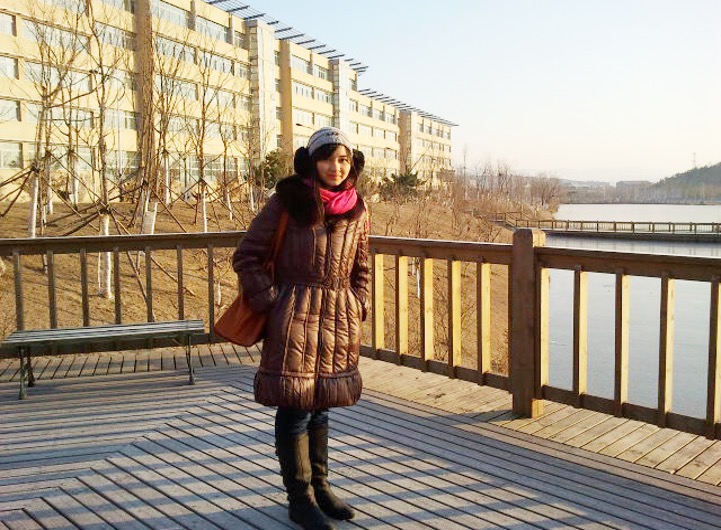
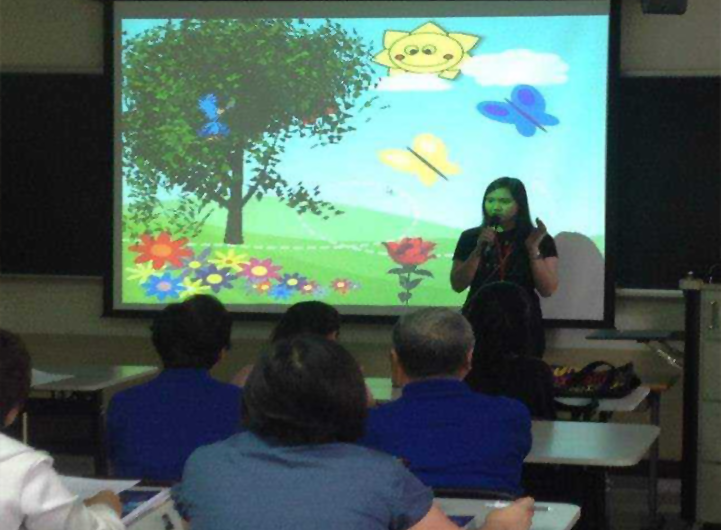
2. How is your experience teaching at UP Diliman so far?
So far, my experience teaching in UP Diliman has been very smooth and fun. Everyone in the Department is very friendly and people are always willing to help whenever I have concerns. The office has a warm feeling and it is very comfortable and motivating to work with my fellow language teachers. It is also very interesting to meet teachers of other languages with the different cultures and experiences in teaching our respective languages. Shout out to Ms. Elsie, who is very helpful and answers every single question I have, and to Ate Vicky!
Teaching students from different backgrounds is a challenge I welcome gladly. There are two kinds of students who enroll in my classes in UP: those with background in learning and speaking Chinese, and those without. Teaching Chinese to persons with no prior experience with the language is much simpler, as the lessons are curated especially for those with no background. On the other hand, those who come from a Chinese background are a mixed bag of challenges. Sometimes, they are just excellent, and other times, they exhibit some errors that have become habits, which may sometimes prove challenging to correct. Either way, I enjoy giving my students challenges, considering their background, and presenting them with activities which are matched to their skill levels.
3. What got you interested in learning and teaching Chinese?
I was always an achiever during my formative years. I loved getting awards or participating in events, be it playing the piano or dancing in our school’s Chinese dance troupe. I always wanted to get top marks, including in my Chinese classes, so that I could walk on the stage at the end of the year. Furthermore, learning Chinese in college was a pathway for me to test my limits with a new experience–that being my stay abroad. Chinese was the pathway towards forming my confidence and independence. It was also a way for me to travel, to test the extent of my skills, and to see what I could really do.
Of course, all of these is apart from wanting to immerse myself in Chinese culture. Back during high school, when F4 was all the hype, I used to–and still do–listen to Chinese songs. That was another one of my main motivators to get good in Mandarin Chinese, as the culture I immersed myself in relied on the language heavily. From TV shows to song lyrics, Chinese language lets me enjoy and appreciate the culture more than if I had not pursued learning the language.
As for teaching, I see it as another medium of performance. Every class is a new performance, and the rigor of preparation beforehand echoes the practice I used to do as member of our Chinese dance troupe. As a performer, teaching and its challenges are perfect for me and my skills and, quite frankly, there hasn’t been any other activity more challenging or as rewarding to me.
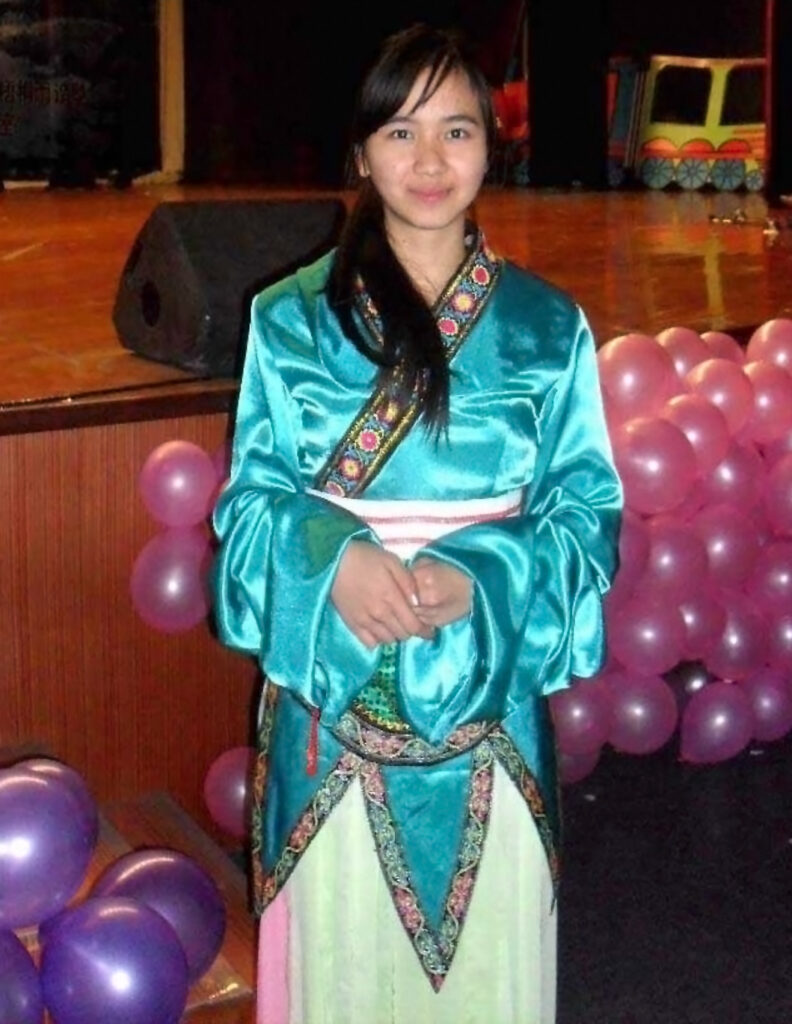

4. Can you share some tips for learning Mandarin, especially for students who might be intimidated by the language and for students who are of Chinese heritage but might not know how to improve their proficiency in the language?
- Listen to Chinese music and watch Chinese tv shows/movies/drama. Listen and watch as often as possible. More language immersion is better.
- Practice with native speakers and encourage them to correct your pronunciation.
- Memorization is key! Improve vocabulary through memorization.
- Confidence. Dont be afraid to say a wrong word or sentence. Learning a language involves lots of talking. Even if you mispronounce some words, it’s okay. Overcoming insecurity and shyness is key to effectively learn a new language.
- Prepare mentally, emotionally, and physically. You can’t change the way Chinese language works, but you can try different approaches to learn it. Learning Chinese is a fascinating journey so just enjoy the ride.
5. Finally, what are some things that you enjoy during your leisure time (e.g., hobbies, things that you are learning)?
I enjoy playing the piano and organ during my free time. I am also an avid foodie and love trying new dishes. Traveling is also another one of my passions. I try to keep up with the latest trendy places to visit and foodstuffs!


Published by UP Department of Linguistics

